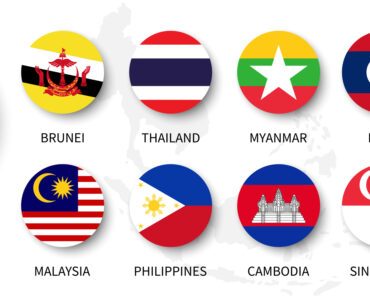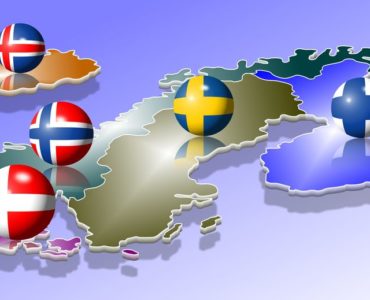Russia’s invasion of its neighbor and ex-satellite Ukraine is the main focus in today’s news and has supplanted the COVID pandemic as the leading story of 2022 so far. The images of Russian tanks, missiles and the encroachment of capital city Kyiv have raised worldwide concerns of an impending large scale war. These concerns especially occupy the minds of the citizens of the Baltic states.
Which are the Baltic States?
Estonia, Lithuanian and Latvia are called the Baltic states because they all have coasts on the Baltic Sea.
The Baltic countries – Estonia, Latvia and Lithuania – share common features and a similar history. These three countries at the EU border with Russia regained their independence from the Soviet Union in the early nineties before joining the EU in 2004 and more recently, the euro area. (from the EU official website).
The Baltic state languages are all official languages of the European Union. The Baltic states are also members of NATO, which provides these countries with a security blanket against Russian invasion. It is believed that Russian aggression against these states would serve as a casus belli which would cause the United States and other European countries to engage Russia. The results of such a conflict would be grave. Yet, people in the Baltic states are worried and afraid of the big, bad Russian bear.
Why are they worried?
Despite the security provided by NATO, all of the Baltic states were formerly part of the Soviet bloc. Russian influence is still felt in these countries who have recently gained their independence. For citizens of these countries, a return to the Soviet umbrella is a nightmare. With no military strength of its own, Russia would be able to conquer these countries without firing a single bullet.
Baltic state languages
The languages of the Baltic states are Estonian, Latvian and Lithuanian. There is not a huge demand of translation services in these languages for a few reasons. The populations of these countries is low. About 1.3 million in Estonia, 2 million in Latvia and about 2.8 million in Lithuania. Furthermore, the Baltic states are at the lower level of wealth indices among the countries in Europe.
What drives the need for Baltic language translation services?
Since these countries are all member of the European Union, certain directives apply when selling products to these countries. For example, any medical device which is sold in these countries must be supplied with documentation in the local language as mandated by the relevant directive. The same goes for patent filing, since EU patents can be filed in any member state.
Another driver for demand are the big tech companies like Microsoft and Apple who localize software for use in each Baltic country.
Prices for translation services in the Baltic languages
Despite the low demand for these languages and the limited buying power of the citizens of the Baltic states, the price of translation services in these languages is relatively high. There are not many professional translators and translation companies that specialize in these languages. There are a number of translation companies that specialize in Baltic language translation services. Prices for translation services in Estonian, Latvian and Lithuanian range between US$0.15 and US$0.20 per word.
Use of the Russian language in the Baltic States
If Russian is your only language, you will get along fine in any of the Baltic states. Russian is still a dominant language in this region due to the history of these nations as Soviet bloc members. Furthermore, each of these countries has large Russian populations. For example, about 25% of the population in Estonia and Latvia are Russian. Many citizens of Russia prefer to reside in the Baltic states in order to seek better living conditions than those in Russia, and to take advantage of living in the European Union for tax purposes.





